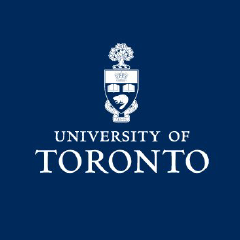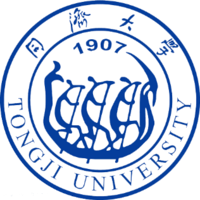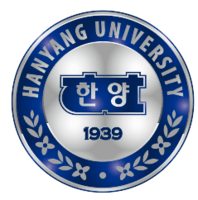Peter the Great Saint-Petersburg Polytechnic University (SPbSPU)
Founded 1899 as St. Petersburg Politechnic Institute. Was also known as Saint-Petersburg State Polytechnic University (Sankt-Peterburgskij Gosudarstvennyj Politekhničeskij Universitet). Acquired current title 2016.
Funding:
Public
Grades 4
Languages 2
Divisions 20
- Humanities FacultyFields of study: Russian, International Studies, Educational Psychology, Sociology, Philosophy, Engineering, Social Sciences, Arts and Humanities, Political Sciences, History, Psychology, Law
- Innovation Department/Division
- Economics and Management Faculty
- Electromechanical Faculty
- Engineering and Construction Faculty
- Foreign Languages Faculty
- Integrated Security FacultyFields of study: Physical Education
- Law Faculty
- Management and Information Technology Faculty
- Mechanical Engineering Faculty
- Medical Physics and Bioengineering FacultyFields of study: Nanotechnology, Cell Biology, Applied Physics, Bioengineering, Biomedical Engineering, Medical Technology, Biotechnology, Physics
- Physico-Technical Faculty
- Physics and Mechanics Faculty
- Power Engineering FacultyFields of study: Heating and Refrigeration, Power Engineering, Energy Engineering, Industrial Engineering
- Radiophysics Faculty
- Technical Cybernetics Faculty
- Technologies and Materials Research Faculty
- Management Graduate School
- International Education Programmes Institute
- Robotics and Technical Cybernetics (RTC) Research Division
Requirements
- Admission details: Secondary education certificate (Attestat o srednem obrazovanii) and entrance examination
Short online courses 107
- Accounting
- Additive Technologies in Metallurgy & Mechanical Engineering
- BIM: from sketch to digital twin
- Basic Skills in Constructive Communication
- Basics of calculating building structures
- Basics of information culture
- Basics of laser technology
- Basics of oil and gas business
- Basics of project activities
- Bioethics
- Biomechanics
- Building design. Bim
- Cognitive control systems
- Computational Mathematics Methods
- Computer Engineering in Digital Design and Manufacturing
- Computer simulation of functional materials
- Concepts of modern natural science
- Contract system in the field of procurement of goods, works, services to meet state and municipal needs
- Corporate information systems
- Counterfeiting and safety of goods
- Culturology
- Cyber-physical systems: theory and applications
- Data Science and Big Data Analytics
- Data management
- Design of bulk nanostructured metal materials
- Digital Industry Technologies
- Digital Marketing and Social Media
- Digital culture
- Digital devices and microprocessors
- Digital devices and microprocessors. Part 2. Combination and sequential devices
- Digital literacy
- Digital manufacturing and design activities
- Ecology
- Elasticity theory
- Engineering and computer graphics
- Enterprise Architecture
- Enterprise economy. Part 1
- Enterprise economy. Part 2. Taxation of legal entities
- Enterprise economy. Part 3. Management accounting
- Experimental methods in biomedicine
- Facilitation
- Financial Investment & Risk Management
- Food and dietary supplements
- Fundamentals of Mechanical Engineering Technology
- Fundamentals of Neuroinformatics and Machine Learning
- General communication theory. Probabilistic models of signals and systems
- Higher mathematics. 1 semester
- Higher mathematics. 2 semester
- History and methodology of science
- History and philosophy of technical reality
- History of fine arts
- How to make your professional career
- Human Resource Management
- Human ecology
- Information technology in environmental protection
- Innovative technologies in social work
- Introduction to Biomedical Engineering
- Labor economics and social and labor relations
- Lean
- Logic and theory of argumentation
- Logistics
- Management
- Manual and partially mechanized welding (surfacing)
- Marketing
- Mathematical Methods in Economics
- Mathematical logic
- Mathematical physics
- Methods of molecular biology
- Microbiological methods for monitoring the safety of food raw materials
- Modeling formalization
- Modern industrial electronics
- Modern technologies of physical and mathematical modeling of hard-to-recover hydrocarbon reserves (high-viscosity oil and bitumen)
- Modern thermal imaging diagnostics of capital construction facilities and engineering systems
- Molecular cell mechanisms of hemostasis impairment
- Molecular cell mechanisms of the physiology of hemostasis
- Nuclear power. Introduction
- Office work (Documentation support)
- Organization, technology and design of trade enterprises
- Pedagogical design
- Personal Effectiveness Skills (SoftSkills)
- Phase transformations
- Philosophy
- Physical education
- Physicochemical foundations for the creation of new materials and technologies
- Polymer composite materials
- Polymers with special properties
- Predictive analytics practice in metallurgy
- Production management
- Psychology
- Quality loop concept
- Reliability and diagnostics of mining electrical equipment
- Russian language and culture of speech
- Sales Management
- School of counseling skills
- Seismic signal processing
- Smart Materials: Microscale and Macroscale Approaches
- Technologies of "Factories of the Future"
- Technology Leadership and Entrepreneurship
- Technology for building an individual trajectory of a professional career
- Technology of modern composite materials with carbon fillers
- The basics of the training process for e-sportsmen
- Theoretical mechanics 1 semester
- Theoretical mechanics 2 semester
- Theory of Inventive Problem Solving (TRIZ)
- Theory of State and Law
- Web 2.0 programming in Python
- Web Development with Java Spring Framework


